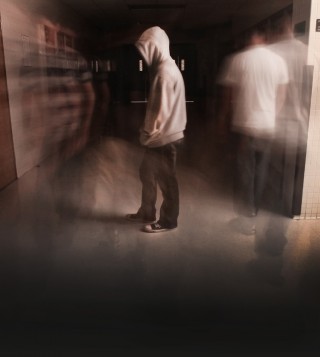
Students find a light to overcome loneliness, uncertainty
By Jordan Hearne
Reporter
Some students feel that the standard of equality and normalcy at Baylor stops at sexual orientation.
Adam Short, a homosexual Baylor student, had a slow beginning to his college career.
“Initially, I was really, really, really, lonely. It was hard to not really have anyone to talk to,” he said. “I felt forced into isolation.”
Short, a Fort Collins, Colo., sophomore, is one of a number of lesbian, gay, bisexual, transgender and questioning students at Baylor.
While his personal experience at Baylor has been largely positive, he said he believes the biggest issue Baylor has in conjunction with the LGBTQ students is isolation. He said a lack of acknowledgement from the university has caused incoming students struggling with their sexual identity to feel like they have no support.
“They should go to the counseling center, but they don’t know that. One person last year was afraid that if they went to a counselor they would be expelled,” Short said.
Short’s experience led to the formation of the Sexual Identity Forum (SIF), an unofficial group of LGBTQ students at Baylor, of which Short is the president.
Austin senior Kyneshawau Hurd had an experience on Baylor’s campus that stuck out in her mind. While walking with a female friend her freshman year – someone who was not her partner nor romantically involved with her – four male students drove by in an SUV and taunted the women.
“First of all, they almost hit us, and then they rolled down the window and started screaming ‘Lesbians! Dykes!’” Hurd said.
She said the instance made it even more difficult to eventually come out as a homosexual student, but facing these types of adversities would eventually build character.
“So throughout all the negative experiences came a positive,” Hurd said.
Short said his personal encounters with Baylor students have been friendly. Last April, after a New York Times article discussing LGBTQ groups on Christian college campuses publicly identified Short as a gay student, he was nervous about the reaction.
“I was walking through the parking lot and these big frat guys came up to me and recognized me from the article,” Short said. “I was worried, but they were very friendly.”
The New York Times article named other universities where students have had difficulties living as LGBTQ students. Amanda Lee Genaro was expelled from North Central University in Minneapolis after being more open about her homosexuality and would only be able to reapply for admission if she would reject being a lesbian.
At Harding University, administrators blocked a website that discussed the experiences of its gay students.
As to how the general Baylor student population sees LGBTQ students, Short said he believes students view homosexuality and the like as a subject they will never have to deal with nor take a stand for.
“They should try to get used to it now. When they go out in the real world, they will have gay co-workers and customers and won’t just be able to ignore it,” Short said.
Hurd said she wants the Baylor community to understand that LGBTQ students are no different from other students.
“It’s really weird when people find out ‘What? You’re not straight?’ They completely change how they feel and view me, but I’m the same person you’ve known for years,” Hurd said. “You just learned something different about me. We’re not not typical. We are the typical Baylor student.”
The Sexual Identity Forum is expected to apply to become a chartered organization after being denied by the university last semester.
Baylor’s policy on human sexuality considers heterosexual sex outside of marriage and homosexual behavior deviations from proper sexual behavior.